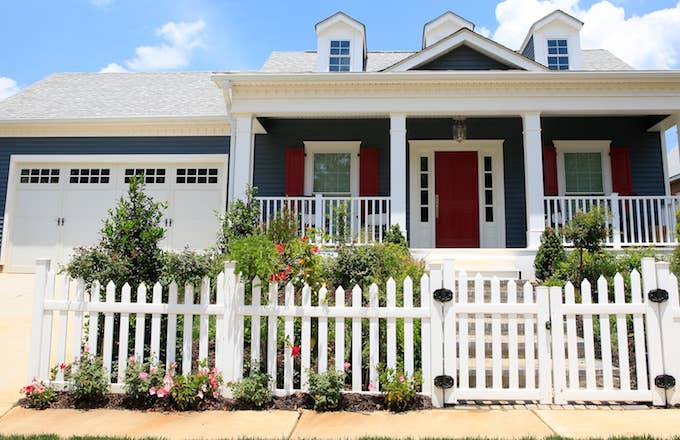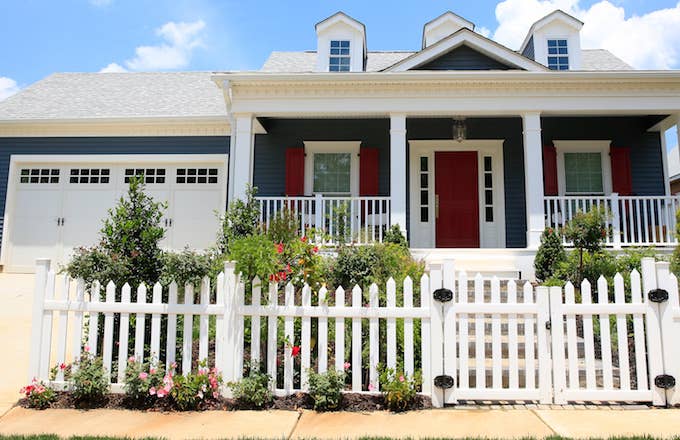
It's no secret that the effects of years of racial discrimination are long-lasting, even decades after overtly racist practices were finally made illegal, and with something as essential to the American Dream as home ownership, it's unfortunately no different. In fact, the gap between home ownership among white and black people across the country is actually worse than the Jim Crow era, according to the Associated Press.
Despite the Fair Housing Act banning racist lending practices that made home ownership for non-white citizens nearly impossible, black and Latino Americans still face much higher mortgage rejection rates compared to white Americans. Based on millions of records from the Home Mortgage Disclosure Act over the course of a year, findings revealed a troubling pattern of rejections of applications from people of color that far exceeded those from white applicants. Unsurprisingly, black people saw the most pushback in southern cities like Gainesville, Florida and Mobile, Alabama, while Latinos had the most problems in Iowa City, Iowa.
It might be comforting to assume that these problems only exist in more rural parts of the country, but there were major disparities in metropolitan areas like Atlanta, Detroit, St. Louis, and San Antonio as well. In Philadelphia, black people are nearly three times as likely to be denied a conventional mortgage loan than white people.
Applicants recounted experiences with loan officers who seemed aggressive in their vetting processes, searching endlessly for the smallest reasons to reject their applications. One black woman, Rachelle Faroul, was denied a loan over a $284 unpaid electric bill despite teaching full-time at the University of Pennsylvania. The findings also showed that rejections for other minority groups, including Asians and Native Americans, were higher than whites in some cities as well.
"Wealth and financial stability are inextricably linked to housing opportunity and homeownership,” Lisa Rice, executive vice president of advocacy group National Fair Housing Alliance, told the AP. “For a typical family, the largest share of their wealth emanates from homeownership and home equity.” As of the last census, the average net worth for a family sits at $9,000 for African American families and $12,000 for Latino families, compared to $132,000 for a white family.
Some lenders even acknowledge the racial gap but reiterate that their decisions are based solely on credit history and debt-to-income ratio. TD Bank, which turned away the highest proportion of black and Latino home loan applicants of any lender, insists they "make credit decisions based on each Customer’s credit profile, not on factors such as race or ethnicity."
Considering the discrimination that also exists from the classroom to college to the work force, it's a never-ending cycle that keeps marginalized communities a few steps behind. It's a dangerous game of catch up that only seems to be getting worse.

